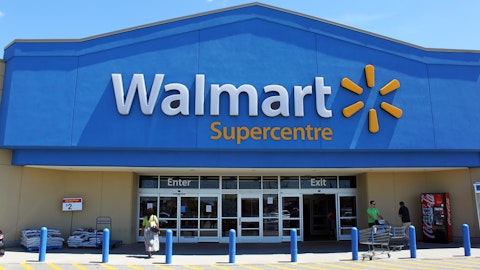Jamie Dimon: Obviously, Mike, let’s say, a very good question, which we always concerned at. We have always talked about complacency and all things like that. So obviously, when you are getting up to bat 300 times a year, you are going to make €“ have errors. And we don’t want our company to be terrified errors that we don’t do anything. And the complacency is then burdened by bureaucracy, which is stasis and depth. So, you have to be very careful when you make an error like you cripple the firm. We are very disciplined and you see that in a lot of different ways. You see in our leverage lending book. You see the success of our investments. You see it in the quality of our products and services. You see it in our €“ in all these things.
And it’s no different for an acquisition. There are €“ so the acquisitions are done by the businesses, but it’s also a centralized team that does extensive due diligence. So, the business does it. The centralized team does it. We have been doing it for 20 years, like we just started doing something like that. And obviously, there are always lessons learned. And at one point, we will tell you the lesson we learned here when this thing is out of litigation. But we are quite comfortable. And the people who are responsible are the people in the business. So, they €“ that business did the acquisition, they are responsible, they report back. And we expect people, when they talk to all of us is the goods, the bad, the ugly. We are never looking for how great everything was.
And obviously, this thing in one way or another, it was a huge mistake.
Mike Mayo: Let me follow-up on that. So, that relates to the inorganic growth. As it relates to the organic growth, such as in the payments business, which I know is a focus that cuts across a lot of different business lines. So, as you invest more in payments, which is €“ can be a 20 or 30 PE business, which could be great if you got there, who is responsible for that sort of organic investment that cuts across? Sometimes the way you aggregate the data, it’s consumer, it’s the investment bank, it could be asset management, it could be commercial, it can be everything in payments. Who is responsible for those?
Jamie Dimon: So, just to be clarified. So, I would say that Marianne and Jen, when it comes to credit, debit, checks and all the consumer-related stuff and Takis, which I think you saw in the presentation about payments at Investor Day reporting to Daniel, and that is on the wholesale payments, merchant processing, a whole bunch of stuff and those are direct responsibilities, it’s quite clear this is an area that counts across the company. So, it’s a payments working group that just spends time on that. That working group has not done an acquisition, okay. And if they make €“ if they want to invest €“ which there are cases, by the way, which you €“ and you will see more this year, we decided jointly and all the way up to Daniel and me.
Mike Mayo: And then last follow-up to my first start, the general comment. I mean this is the third year in a row of about $5 billion of expense growth, and you have Slide 11 there. But I mean that’s a lot of certain front-loaded expenses for less certain back-ended benefits. How is your comfort level that you are going to see those back-ended benefits relative to the past?





